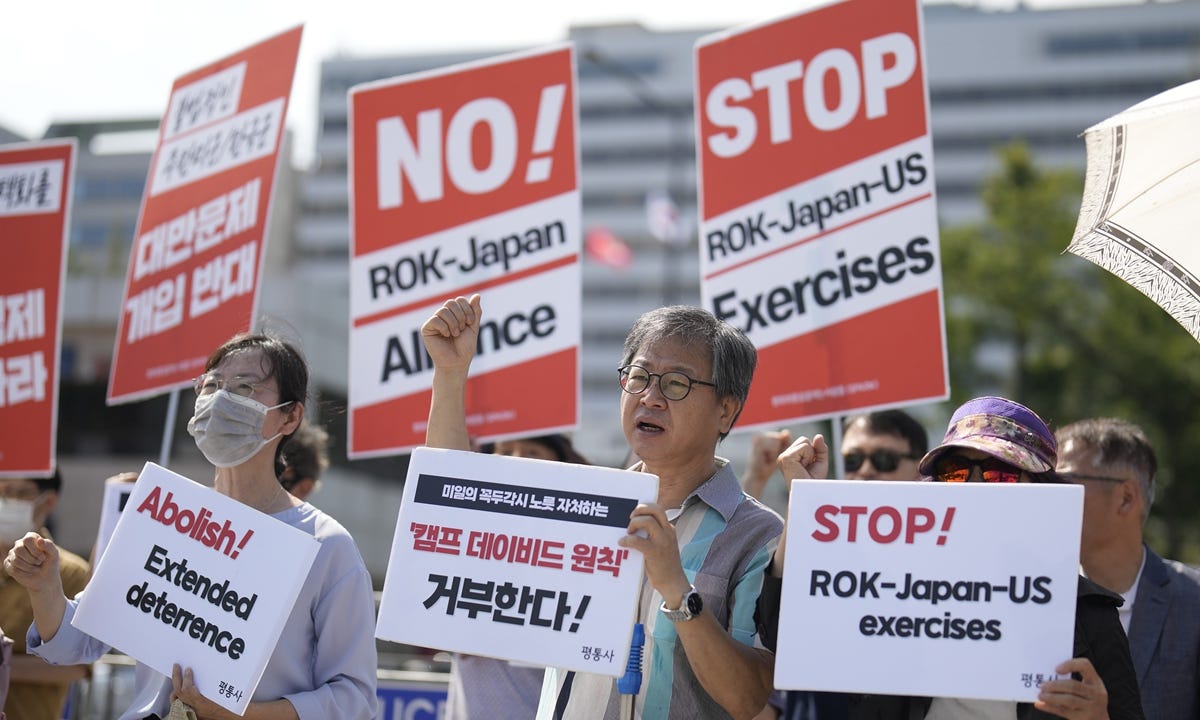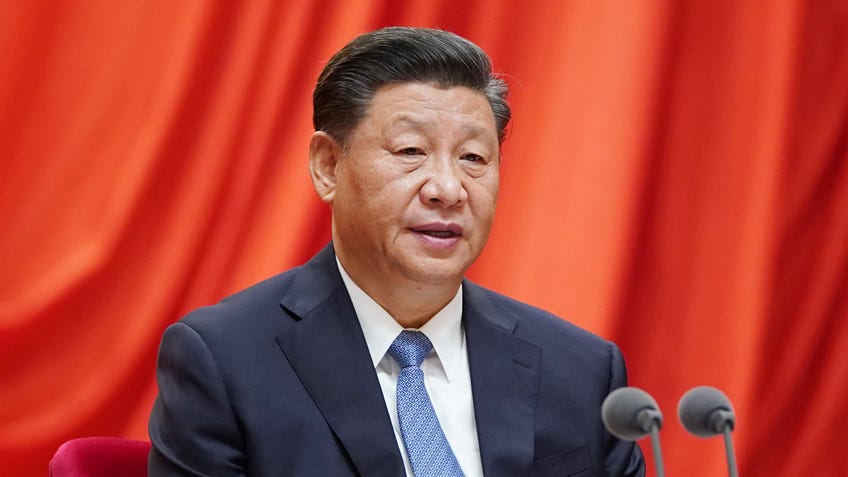China Opposes the US-led Interference Attempt over the Taiwan Strait and the South China Sea
China Opposes the US-led Interference Attempt over the Taiwan Strait and the South China Sea

On January 8, China’s Foreign Ministry expressed serious concerns over the US-Japan-South Korea Trilateral Indo-Pacific Dialogue took place last week in Washington. The dialogue’s joint statement said that the three countries expressed concern about China’s “dangerous and escalatory behavior” in the Taiwan Strait and the South China Sea, and would continue their trilateral maritime security and law enforcement cooperation in the regions.
During a press conference, China’s Foreign Ministry Spokeswoman Mao Ning refuted the accusations against China, condemning the dialogue as an attempt “to cobble together exclusionary groupings in the name of cooperation” and to interfere with China’s internal affairs.
Spokeswoman Mao pointed out that a “certain non-regional country has sought to flex muscles and incite confrontation in the South China Sea”, referring to the US-Philippines naval exercises held last week in the area. In response to the heightened tensions, Chinese Navy conducted naval and air patrols in the contested waters, reiterating its sovereignty over the contested Ren’ai Reef unlawfully claimed by the Philippines.
Xi Jinping Stresses to Enhance Anti-Corruption Efforts

On January 8, the General Secretary of CPC Xi Jinping addressed at the annual conference of the Central Commission for Discipline Inspection (CCDI), the Party’s top supervisory authority. In the speech, Xi emphasized that the decade-long efforts of the anti-corruption struggle have achieved an overwhelming victory. However, Xi pointed out, the situation remains severe and complex, and the tough battle against corruption requires sustained efforts. As the largest Marxist ruling party in the world, the CPC needs to promote self-revolution to ensure that “the Party will never change its nature, its conviction, or its character”, Xi stressed.
The anti-corruption campaign began after the conclusion of the CPC’s 18th National Congress in 2012 and has become the largest organized anti-corruption effort in the Party’s history. As of the Party’s 20th National Congress in 2022, discipline inspection authorities nationwide have initiated investigations into over 4.648 million cases, and disciplined over 4.573 million individuals. By the first week of 2024, 35 government officials have been removed from their positions for investigations.
The Party’s effort has been overwhelmingly approved by the people, specifically because Xi vowed to crack down on both high-level and local officials. Since 2012, over a hundred high-ranking party, government, and military officials have been investigated, including seven national leaders. The highest-ranking figure among them was Zhou Yongkang, a member of the 17th Politburo Standing Committee. The most recently concluded investigation involving a high-ranking official was of Dong Yunhu, former Chairman of the Shanghai Municipal People’s Congress. He was arrested on December 29, 2023, by order of the country’s Supreme Procuratorate.
China’s Civil Aviation Authority Announces Record-Breaking Spring Festival Travel Season

January 8, 2024, BEIJING — In a routine press conference held by the Civil Aviation Administration of China this afternoon, officials announced that the 2024 Spring Festival travel season is set to commence on January 26 and will extend through March 5, spanning a total of 40 days. This period, also known as ‘Chunyun’, is often considered the largest annual human migration in the world, as millions of Chinese nationals travel for the Lunar New Year celebrations.
Predictions indicate that passenger traffic in civil aviation will reach a staggering 80 million during the Chunyun period, averaging 2 million per day — a figure that is poised to set a new historical record. The peak of the travel rush is expected to hit on February 8 (the 29th of the last lunar month), February 16 (the 7th day of the first lunar month), February 20 (the 11th day of the first lunar month), and February 25 (the 16th day of the first lunar month).
The Spring Festival, also known as the Chinese New Year, is the most important traditional holiday in China, with the country virtually shutting down as people take time off from work to be with family and friends. The travel season presents remarkable logistical challenges as the country’s transportation infrastructure deals with an immense surge in traffic.
The aviation industry has been preparing to handle the increased number of travelers, ensuring safety and efficiency are prioritized. China’s airports will likely see a significant uptick in foot traffic, with stringent measures in place to handle the holiday rush smoothly.
As China continues to recover from the impacts of global events that have affected travel in recent years, the projected numbers for the Spring Festival travel season are seen as a positive sign of resilience and recovery. The success of this year’s Chunyun will be a testament to the country’s robust transportation network and its ability to manage large-scale events efficiently.
